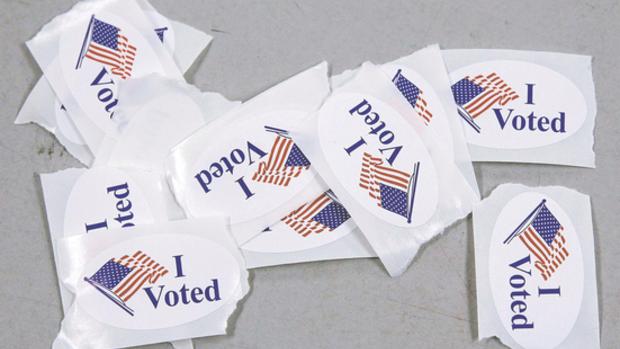North Dakota Should Stick to Its Guns on Voter ID

The Grand Forks Herald today, citing recent federal court opinions striking down voter ID laws in Texas and Wisconsin, tells North Dakota’s Republicans that they were wrong to pass an even more stringent law here.
“North Dakota Democrats now have been proven right” on the voter ID issue, opinion editor Tom Dennis writes on behalf of the paper.
“North Dakota should take note of these decisions and preemptively change its own law,” he continues.
First, let’s admit that the courts are fallible. Saying that Democrats “have been proven right” on this issue because the federal courts have come down on their side is like saying President Franklin Delano Roosevelt “proven right” in rounding up Asian Americans into internment camps during WWII because the Supreme Court sided with him in Korematsu v. U.S.
(On an unrelated note, the Supreme Court has never directly overturned that issue, and it wasn’t until 2011 that the executive branch of our government even admitted that internment was an error.)
[mks_pullquote align=”right” width=”300″ size=”24″ bg_color=”#ffffff” txt_color=”#000000″]What we should be asking is not whether perfectly reasonable identification laws are too burdensome for certain voters, but rather why those certain voters are incapable of paying the modest cost in time and money it takes to obtain an ID.[/mks_pullquote]
It’s more than a little tiresome to hear people try and declare political issues over because the courts have weighed in. The right doesn’t except Roe v. Wade as the last word on the abortion issue, nor does the left consider the issue of money in politics closed given Citizens United v. FEC.
Second, we’re having the wrong sort of debate about the voter ID issue.
The ID requirements put in place by states like Wisconsin and Texas are extremely modest. Even here in North Dakota, where the law is a bit more stringent (and currently being challenged in federal court), it is both easy and cheap to obtain the requisite identification to vote. What’s more, a failure to require identification renders moot reams of law pertaining to everything from the voting age to voting boundaries. Why even bother with such thing if election officials cannot be given the means to identify qualified voters?
What we should be asking is not whether perfectly reasonable identification laws are too burdensome for certain voters, but rather why those certain voters are incapable of paying the modest cost in time and money it takes to obtain an ID.
This is an aspect of the debate which gets overlooked. For instance, here in North Dakota a non-driving ID costs $8 at most, and it’s available for free to those who cannot afford even that. If there are people in this state who cannot afford even $8 for an ID – and I suspect they’re about as common as unicorns, in truth – we should talk about that.
The rebuttal from voter ID opponents is that it isn’t just the $8 cost for the ID. It’s the cost for the source documents you must have to obtain the ID – things like a birth certificate or a passport – not to mention the cost of traveling to the local DMV which, for some rural citizens, is not insignificant.
But those things aren’t justification for scrapping voter ID. They’re impetus to increase outreach to make ID’s more accessible. We can address them by making access to records like birth certificates cheaper, and perhaps having DMV officials travel a circuit of rural communities to provide ID’s and other services to the people who live there.
Of course, voter ID opponents won’t be satisfied with these measures, at which point I think it’s fair to question their motivations.
Again, there’s nothing wrong with requiring an ID to vote. Republicans can, and should, be willing to work to make ID’s accessible to all qualified voters. But they shouldn’t give up on voter ID entirely.




